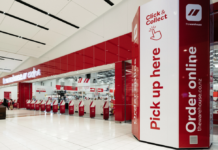By Leon Bowker & David Ossa
Despite a successful strategy to contain the pandemic in 2020, New Zealand was hit hard by the Delta variant in the second half of 2021. The country faced the most cumulative days in lockdown since the pandemic began, especially in Auckland.
This heaped pressure on retailers that were already dealing with supply chain disruptions, labour shortages, and increased staff costs.
As New Zealand continues to reopen under the new traffic light system, retailers will also have to operate with additional safety measures in their workplaces.
Despite the government’s financial initiatives to support businesses that COVID-19 restrictions have affected (including the Wage Subsidy, Resurgence Support Payment, Small Business Cash Flow (loan) Scheme and changes to rent relief measures for landlords and tenants), the extended periods of lockdown and travel restrictions across the country have already tested the resilience of the retail sector, especially smaller businesses with limited online presence and tight capital reserves.
As New Zealand retailers gather pace into 2022, there are several challenges facing them this year and beyond.
Attracting and retaining staff has been a persistent headache for retailers across the country. Some have been forced to offer higher wages and additional benefits, such as in-store discounts, flexible hours, and career progression opportunities to retain their employees.
This has proven particularly hard, especially in an environment where wages have continued to increase – the average wage in the sector is now NZ$25.05, compared with the adult minimum hourly wage of NZ$20.00 and the hourly living wage of NZ$22.75.
Staff shortages across the sector have continued to challenge retailers, exacerbated by New Zealand’s restricted borders, which have limited the influx of casual and permanent workers into the country.
Trading under the traffic light framework
New Zealand commenced operating under the new traffic light framework when all District health boards achieved 90 per cent double vaccination for the eligible population.
The system imposed additional safety protocols, including capacity limits, recordkeeping and mask wearing.
A key consideration for retailers has been whether to enforce vaccine mandates for employees in their workplace.
On the customer side, there is consensus in the sector that requiring vaccine certificates from consumers would be challenging, due to the heavy flow of people in and out of physical stores.
But deciding whether to require vaccinations from employees will require a comprehensive risk assessment.
Retailers risk losing staff if they require vaccinations – not to mention the potential legal challenges that could come from this requirement – but not requiring vaccinations might keep some consumers away.
Some retailers, such as the Warehouse Group, have already made vaccinations compulsory in their workplace from January 2022.
Havoc in the supply chain
The global supply chain continues to suffer from delays in fulfilment of critical orders, empty shelves, increased shipment costs, and customer dissatisfaction.
New Zealand, where international trade represents roughly 60 per cent of the country’s economic activity, has not been immune to the effects of this global phenomena.
Amid the backlog in supply from lockdowns around the globe, local retailers are experiencing unprecedented surges in freight costs due to the increased economic activity government stimulus packages have caused.
Some are being forced to carry additional stock to account for delays and interruptions. This has resulted in higher funding requirements and costs, forcing retailers to increase product prices (contributing to the current increase in inflation rates in the country1), which may affect consumer behaviour moving forward.
What does the future hold?
While conditions in the sector have been difficult, it is becoming apparent that larger, well-established retailers have performed well.
Conversely, smaller businesses with limited e-commerce capabilities and less bargaining power with suppliers and landlords have been struggling.
However, there is reason for optimism in the short term, due to a strong economic bounce back after months of lockdown late last year – similar to that experienced after prior lockdowns – and accumulated savings by consumers during lockdowns.
The real test this year will be retailers’ ability to adapt to a post-pandemic normalcy marked by higher online sales, in-store safety requirements, vaccination certificates, and escalating labour costs. Getting the formula right could mean the difference between survival and failure for many retailers.
About Authors:
Leon Bowker is Partner, Deal Advisory, KPMG while David Ossa is Associate Director, Deal Advisory, KPMG. Read more about the report here.











